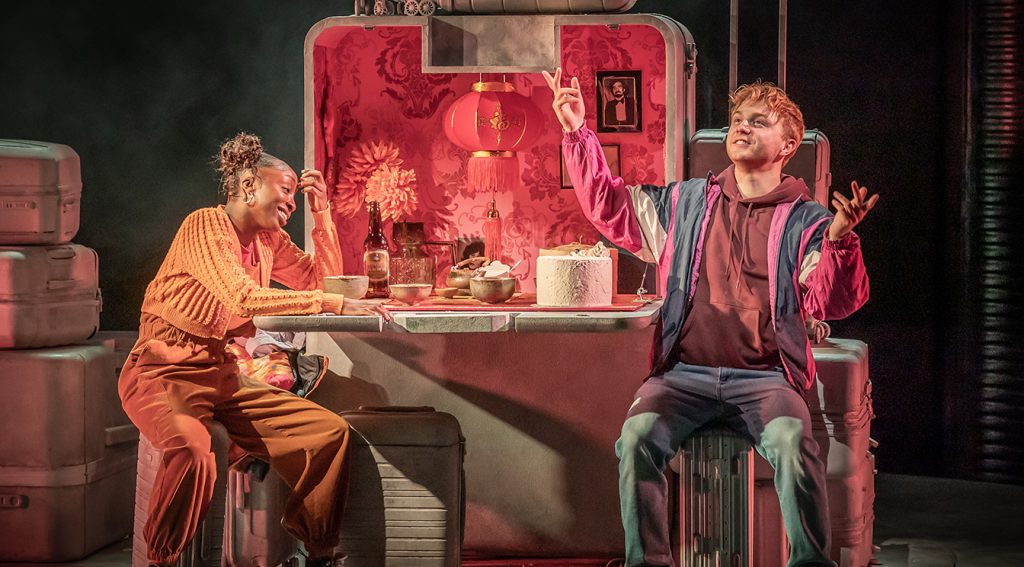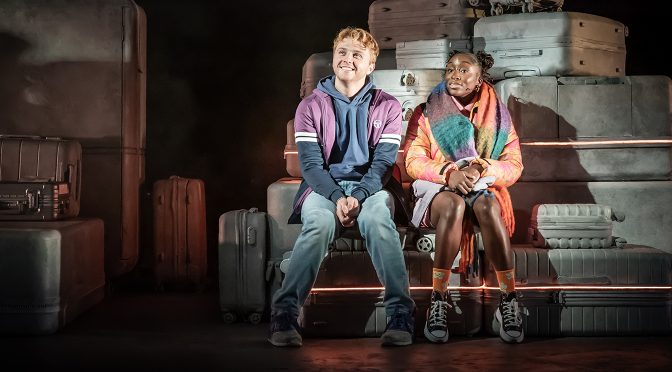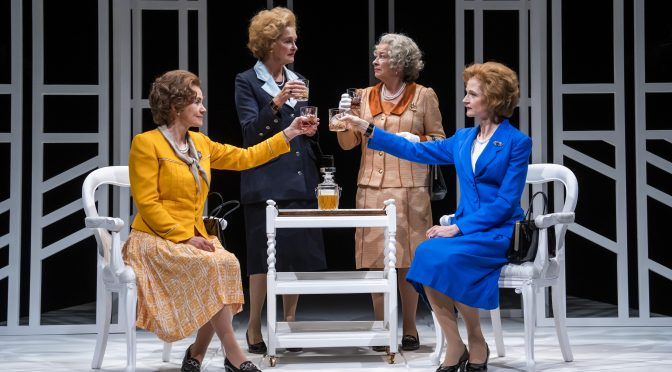This new musical from Jim Barne and Kit Buchan is memorable and entertaining. The story is neat: an English man and an American woman, meeting before a wedding, provide a clash of cultures and learn a lot from each other. The characters are strong and the performances, from Dujonna Gift and Sam Tutty, are excellent.
What sets this show – which has plenty to say about dating – apart is its GSOH. Jokes can be tricky in musicals – many have tried and struggle with this. And humour is hard when you are on well-trodden ground (the show is, essentially, a rom-com). But there’s enough originality in the characters, if not the scenario, to challenge and surprise. Songs are about happiness and loneliness, a night on the town and a subsequent hangover, even a Christmas angle and, of course, Tinder. It’s standard stuff. But each number has a quirk that helps it stand out. Using naïvety or cynicism, the strong collection of songs manage to be “something a little different”.
Tutty makes his eccentric character, Dougal, instantly appealing, with each oddity endearing. Dougal’s journey might feel hackneyed in less capable hands, but here vulnerabilities aren’t just believable, they become admirable. Gift is a revelation, her voice strong, her acting impeccable. Her frosty character, Robin, is dramatically layered and Gift’s grip on comedy is fantastic.
There’s a serious underlying theme to the show’s fun, an ambition to be more than a rom-com, as both characters are estranged from family members and, as the saying goes, each is unhappy in their own way. It’s Dougal’s father and Robin’s sister who are getting married (note how vivid all offstage characters are – a sure sign of strong writing), but things aren’t quite as they seem. The relationships are explored with depth and impressively controlled sentiment aided by Tim Jackson’s firm direction.

Two Strangers tackles cliché in a clever way. One character has seen too many movies, the other is more cynical than is good for her. While Dougal imagines what would happen if they were in a film, Tutty’s eyes wide with wonder, Gift skilfully shows how heavily expectations rest on Robin. But none of this is tackled in a predictable way and by the finale there is a complicity to their make believe that bodes well for both. The show, like Dougal and Robin’s weekend is “strange and sweet”. So good, in fact, that I’m keen for second helpings.
Until 20 January 2024
Photos by Marc Brenner




